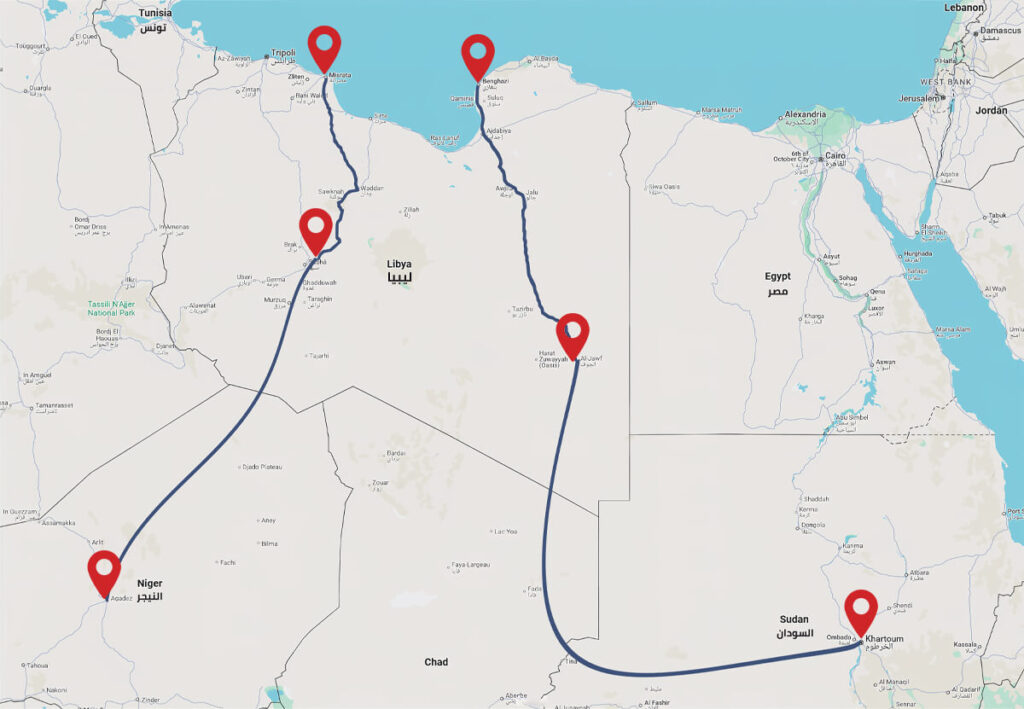About
Libya Africa Transit Corridors Project
Driving Progress Through Strategic Investment
Project Overview
The Trans-African Corridors Initiative marks a transformative advancement in strengthening Libya’s internal and regional connectivity whilst fostering expanded economic partnerships with neighbouring African nations. This ambitious infrastructure programme will establish two critical transport corridors directly connecting Libya with Niger and Sudan.
Building upon historical endeavours to enhance ties with African neighbours, this initiative has been reinvigorated through the resolute leadership of the National Unity Government and its principal institutions. A pivotal development in the project’s evolution was the strategic consultation held on 3 December 2024 between the Transport Ministry and the Libya-Africa Investment Portfolio, which delineated implementation strategies for the two main routes: Misurata-Tamanhint-Agades (Niger) and Benghazi-Kufra-Sudan.

In accordance with Cabinet Resolution No 535 of 2024, the Libya-Africa Investment Portfolio has received authorisation to commission consulting firms for thorough feasibility assessments and to develop investment frameworks through build-operate-transfer (BOT) arrangements or collaborations with domestic and international enterprises. All studies and final route configurations remain contingent upon the Transport Minister’s approval.
A specialised Higher Committee, constituted under Ministerial Resolution No 18 of 2025, will oversee all phases of the project, ensuring its execution conforms to the highest standards of technical proficiency and developmental effectiveness.
The Vision
This game-changing project puts Libya on the map as the vital link between North Africa and the rest of Africa, boosting the country’s global standing whilst creating seamless connections that drive regional growth.
It’s not just about roads—it’s about building sustainable prosperity that works for Libya and its African neighbours.
Objectives
Comprehensive development:
Comprehensive development
• Unlocking potential in promising regional markets and establishing connections to global marketplaces.
• Facilitating the transition towards a diversified economy centred on services and logistics.
• Generating direct and indirect employment opportunities across all implementation and operational phases.
• Fostering development through strategic infrastructure enhancement and broadened economic activity.
Regional and international connectivity
• Reinforcing frameworks for regional cooperation in transport initiatives and economic integration.
• Facilitating Libya's incorporation into regional and continental infrastructure networks.
• Establishing Libya's position as a vital economic corridor for trans-Saharan trade.
• Creating a strategic gateway for sub-Saharan countries to access international markets through Libya.
Empowerment and Stability
• Empowering the national private sector to participate effectively in the implementation and operation of infrastructure and transit projects.
• Developing Libyan ports into advanced logistics centres that enhance transit trade and bolster economic integration.
• Promoting local stability through improved internal connectivity, particularly in border regions, whilst implementing complementary service and production projects along key transport corridors.
• Cultivating social, commercial and political relationships with Africa to strengthen Libya's stability and enhance its central role in regional integration frameworks.
Construction and works included within the project
The project encompasses a number of vital infrastructure elements, most notably:
- Paved highway
- Crude oil and gas pipeline route
- Railway line
- Fuel transport routes (diesel - petrol - gas)
- Underground pathway for communications and fibre optic cables
- Underground route for electricity transmission from renewable energy sources
Higher committee for the transit routes project
Planning and accelerated steps towards implementation
The Higher Committee was formed pursuant to the Transportation Minister’s Decision No. (18) of 2025, to directly supervise the preparatory and implementation phases of the project. The Committee is concerned with the following tasks:
- Preparing a vision and work plan that meets the requirements of all project phases, including necessary timescales.
- Proposing the formation of subcommittees in coordination with relevant entities, and submitting them to the Transportation Minister for issuing necessary decisions.
- Defining the scope of work and communication channels with internal and external parties, and proposing required memoranda of understanding and agreements.
- Monitoring the work of subcommittees and approving their outputs, whilst determining their tasks and competencies.
- Preparing an estimated budget for the work of the Higher Committee and subcommittees and submitting it to the Transportation Minister for approval.
- Submitting periodic reports to the Transportation Minister clarifying the progress of task implementation.
- Coordinating with the Libya Africa Investment Portfolio to follow up on the work of consulting offices tasked with feasibility studies and steps to offer the project for investment.
- Receiving and approving the final report of economic, technical and planning feasibility studies, and attaching necessary recommendations before referring it to the Transportation Minister.
Participating and supporting entities
In the context of joint work on implementing the Transit Road Project, Cabinet Resolution No. (535) of 2024 clearly defines the key roles and responsibilities of both the Ministry of Transport and the Libya Africa Investment Portfolio, within a regulatory framework aimed at enhancing institutional coordination and integration of efforts among concerned parties to ensure effective and well-considered implementation of this vital project.
Libya Africa Investment Portfolio
The Libya Africa Investment Portfolio undertakes a set of vital tasks within the project, including:
● Contracting with specialised consulting firms to prepare economic, technical, and planning feasibility studies for the project.
● Contracting with experienced national and international consulting firms to evaluate the technical, financial, and legal stages completed for the Railway Authority network, and to determine the extent to which they can be utilised within the project path.
● Offering the project for investment in a (Build-Operate-Transfer) format, or in the form of a partnership between the portfolio and specialised national and global companies.
Ministry of Transport
The Ministry of Transport plays a pivotal role in driving the project towards implementation through the following tasks:
● Forming a joint committee including representatives from the Ministry, the Portfolio, and other entities to determine the most appropriate and feasible transit corridor routes, in coordination with relevant stakeholders.
● Approving the results of technical and economic feasibility studies.
● Approving the determination of the final routes for the project.
● Monitoring project implementation in terms of institutional affiliation and related administrative and technical procedures.
Other concerned government entities
Within the framework of coordinating efforts and integrating competencies, various government entities are expected to contribute to multiple phases of the Transit Road Project implementation by appointing representatives and participating in relevant committees and work teams. Prominent among these entities are:
● Railway Authority
● General Electricity Company
● General Communications Authority
● Land Transport Department
● National Oil Corporation
● Misurata Free Zone
● Al-Marisa Free Zone
Regulatory Laws
Cabinet Resolution No. (535) of 2024
Authorises the Libya Africa Investment Portfolio to contract with consulting firms to prepare technical, economic and planning feasibility studies for the Misurata-Tamanhant-Agadez and Benghazi-Kufra-Sudan corridors.
The resolution also stipulates the formation of a joint committee by decision of the Minister of Transportation, including representatives from the Ministry, the Portfolio, the Railway Authority and Free Zones, to determine the most appropriate routes in coordination with relevant entities.
It allows the Portfolio to commission experienced national and international consulting firms to evaluate the completed technical, financial and legal phases of the network belonging to the Railway Authority, and to determine the extent to which they can be utilised in implementing the project. It also permits the Portfolio to offer the project for investment in a “build-operate-transfer” format or through partnerships with national and international companies, whilst maintaining affiliation with and supervision by the Ministry of Transportation.
Minister of Transport Decision No. (18) of 2025
Includes the formation of the High Committee for the Transit Road Project, tasking it with preparing a comprehensive work plan covering the various project phases, including timelines, proposing the formation of subcommittees in coordination with relevant entities, defining their tasks, monitoring their work outputs and approving their results.
The committee is also responsible for preparing an estimated budget for its work and that of the subcommittees, and submitting it to the Minister of Transportation for approval, in addition to providing periodic reports clarifying the level of progress in implementing tasks.
The committee’s responsibilities also include defining the scope of work and communication channels with internal and external parties, as well as proposing draft memoranda of understanding and agreements required for project implementation.
The committee works in cooperation with the Libya Africa Investment Portfolio to follow up on the work of consulting firms, monitor steps taken regarding offering the project for investment, and receive and approve the final report on technical, economic and planning feasibility studies, with the necessary recommendations attached before submission to the Minister of Transportation.
Implementation Timeline
The following information should be presented in a timeline or appropriate infographic design that highlights the sequence of phases and their dates in a clear and easy-to-understand manner.
Preliminary Phase
10 January - 28 February 2025
Formation of the supreme committee, approval of the work plan, and organisational launch.
Data collection, examination, and classification
1 February - 31 May 2025
Review of previous studies, maps, and understandings, and establishment of a scope of work document for the consulting office.
Initial pathway identification
1 March - 30 April 2025
Review of previous studies, initiatives and targeted pathways from earlier phases, analysis of previously implemented efforts, in preparation for developing a proposal for the most suitable pathway
Preparation of economic and technical feasibility studies
1 June - 31 December 2025
Referral of the draft scope of work to the portfolio, preparation of the feasibility study, monitoring the implementation of the consulting office’s work, receipt of the final report, and coordination for a discussion session for referral and approval
Project investment offering
Begins after results approval
Offering the project in a “build-operate-transfer” format or partnership with national and international companies



